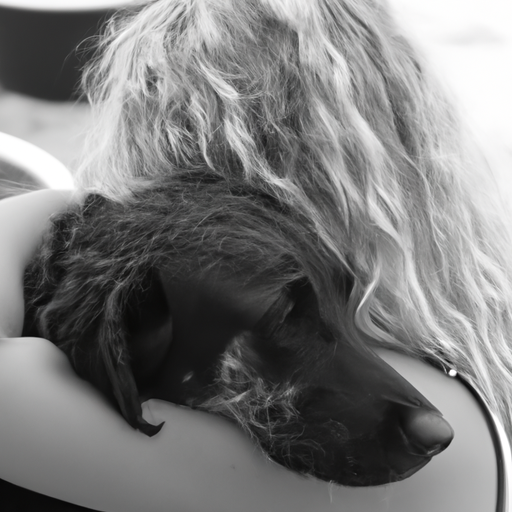The bond between humans and dogs is as old as civilization itself. Known as man’s best friend, dogs have proven time and again their unwavering loyalty and unconditional love for their human companions. But why do dogs love us so unconditionally? The answer lies in their biology, evolution, and the unique relationship they have developed with humans over thousands of years.
Table of Contents:
- The Evolutionary Bond
- The Role of Biology: Oxytocin
- Social Creatures: Pack Mentality
- Communication: Understanding and Responding to Human Emotions
- Training and Socialization
- The Power of Positive Reinforcement
- Frequently Asked Questions
Key Takeaways:
- Dogs and humans have evolved together, leading to a unique bond.
- The hormone oxytocin plays a significant role in the strong bond between dogs and humans.
- Dogs are social creatures and see their human families as their pack.
- Dogs have the ability to understand and respond to human emotions.
- Training and socialization play a key role in fostering unconditional love in dogs.
- Positive reinforcement strengthens the bond between dogs and their human companions.
The Evolutionary Bond
The bond between humans and dogs dates back to around 15,000 years ago. Over time, dogs that were more capable of forming strong bonds with humans had a better chance of survival. This mutual relationship led to the domestication of dogs. Today, this evolutionary bond is evident in the way dogs interact with humans. They rely on us for food, shelter, and care, and in return, they offer us companionship, protection, and unconditional love. An informative article discusses the co-evolution of humans and dogs and how it has influenced the bond we share today.
The Role of Biology: Oxytocin
Oxytocin, often known as the “love hormone,” plays a significant role in the bond between dogs and humans. This hormone, which is released during positive interactions, helps foster social bonding. Studies have found that oxytocin levels increase in both dogs and humans when they interact with each other. This biochemical connection can explain why dogs seem to love us unconditionally. They literally feel good when they are around us, and this positive feeling strengthens their bond with us. More about the role of oxytocin can be found on this page.
Social Creatures: Pack Mentality
Dogs are social creatures by nature, and in the wild, they live in packs. In a domestic setting, dogs often consider their human families as their pack. They form strong bonds with their pack members and tend to be loyal and protective. This pack mentality could be another reason why dogs seem to love us unconditionally. They see us as part of their family and thus, are wired to show us affection and loyalty.
Communication: Understanding and Responding to Human Emotions
Dogs have an uncanny ability to understand and respond to human emotions. They can sense when we are happy, sad, stressed, or excited, and they often respond in ways that seem empathetic. This emotional connection could be a reason why dogs love us unconditionally. They understand our emotions and often mirror them, which creates a strong emotional bond.
Training and Socialization
Training and socialization are key factors in fostering unconditional love in dogs. Dogs that are properly trained and socialized are more likely to form strong bonds with their humans. They learn to trust us and see us as their leaders. Moreover, training and socialization help dogs understand human behavior better, which further strengthens their bond with us. Check out these tips on dog training and socializing your dog.
The Power of Positive Reinforcement
Positive reinforcement, such as treats, praises, and petting, strengthens the bond between dogs and their humans. Dogs, like humans, respond well to positive reinforcement. They learn to associate their humans with positive experiences, which increases their affection for us.
Frequently Asked Questions
1. Can a dog’s unconditional love for its human fade over time?
A dog’s love for its human is generally unwavering. However, neglect, abuse, or severe changes in a dog’s environment can affect its behavior and relationship with its human.
2. Do all dogs love their humans unconditionally?
While it’s believed that all dogs have the capacity to form strong bonds with humans, individual experiences and temperaments can influence their ability to form these bonds.
3. Can the bond between a dog and its human be strengthened?
Absolutely. Regular interaction, training, socialization, and positive reinforcement can all help strengthen the bond between a dog and its human.
In conclusion, dogs love us unconditionally because of a combination of biological, evolutionary, and behavioral factors. Their ability to form strong bonds with us, understand our emotions, and respond to positive reinforcement makes them the ideal companions. This is why dogs are not just pets; they are family. Learn more about building a loving relationship with your dog.



